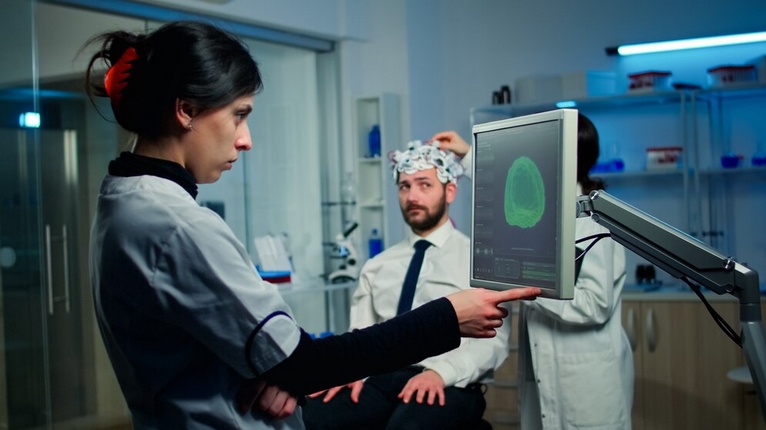Introduction:
In recent years, the field of mental health care has witnessed significant advancements in the search for innovative and effective treatment options. One such cutting-edge therapy gaining attention is Brainsway Deep Transcranial Magnetic Stimulation (Deep TMS). This revolutionary approach offers new hope for individuals struggling with treatment-resistant depression (TRD), obsessive-compulsive disorder (OCD), and other mental health conditions. This article delves into the world of Brainsway Deep TMS in Albany, exploring its principles, process, and potential benefits as a transformative mental health solution.
Understanding Brainsway Deep TMS:
Brainsway Deep TMS is an advanced form of Transcranial Magnetic Stimulation (TMS) that utilizes magnetic fields to target and stimulate deeper brain regions compared to traditional TMS techniques. The therapy focuses on the prefrontal cortex and other brain areas implicated in mood regulation and mental health disorders. By modulating neural activity in these regions, Brainsway Deep TMS aims to alleviate symptoms and improve overall mental well-being.
Principles of Brainsway Deep TMS:
Deep Brain Stimulation: Unlike traditional TMS, which targets more superficial brain regions, Brainsway Deep TMS uses an H-coil to reach deeper areas of the brain. The H-coil design allows for more extensive and focused stimulation, potentially leading to enhanced treatment outcomes.
Neural Network Modulation: Brainsway Deep TMS induces electrical currents in specific brain circuits, which can influence neural network activity. The therapeutic mechanism involves promoting synaptic plasticity and modifying the connections between neurons, ultimately regulating mood and emotional processing.
Customized Treatment Parameters: Each patient's condition is unique, and Brainsway Deep TMS allows for individualized treatment parameters. The therapy can be tailored to suit the patient's needs, ensuring maximum efficacy and safety.
Brainsway Deep TMS Process:
Initial Assessment: The Brainsway Deep TMS process begins with a comprehensive assessment conducted by a qualified mental health professional. This evaluation involves an in-depth review of the patient's medical history, mental health condition, and previous treatment responses. The purpose is to determine the suitability of Brainsway Deep TMS for the individual.
Customized Treatment Plan: Once the patient is deemed eligible for Brainsway Deep TMS, a personalized treatment plan is formulated. The plan includes determining the appropriate H-coil configuration, stimulation parameters, and scheduling of treatment sessions.
Brainsway Deep TMS Sessions: Brainsway Deep TMS sessions are administered by trained technicians in a clinical setting. The patient is seated comfortably, and the H-coil is positioned over the targeted brain area. The coil emits magnetic pulses to stimulate the deeper brain regions involved in mood regulation. Each session typically lasts between 20 to 30 minutes.
Treatment Duration: The duration of Brainsway Deep TMS treatment varies based on the patient's condition and response to therapy. Generally, patients undergo multiple sessions scheduled over several weeks to achieve optimal results.
Monitoring and Progress Evaluation: Throughout the treatment course, the patient's progress is closely monitored by the healthcare team. Regular evaluations help assess the effectiveness of the therapy and allow for adjustments to the treatment plan if needed.
Potential Benefits of Brainsway Deep TMS:
Treatment-Resistant Depression: Brainsway Deep TMS has shown particular promise in treating individuals with treatment-resistant depression (TRD). TRD refers to cases where patients do not respond adequately to multiple courses of antidepressant medications. Brainsway Deep TMS offers a potential lifeline for these individuals, providing them with renewed hope and a chance for symptom relief.
Obsessive-Compulsive Disorder (OCD): Emerging research suggests that Brainsway Deep TMS may be a valuable therapeutic option for individuals with OCD who have not responded well to other treatments. By targeting deeper brain regions associated with OCD, the therapy may offer a novel approach to managing the condition.
Non-Invasive and Safe: Brainsway Deep TMS is a non-invasive procedure that does not require surgery or anesthesia. It is generally well-tolerated, with few systemic side effects.
Minimal Discomfort: During Brainsway Deep TMS sessions, patients may experience mild scalp discomfort or headaches, but these side effects are typically transient and diminish with continued treatment.
Enhanced Quality of Life: Many patients undergoing Brainsway Deep TMS have reported an improvement in their mood, reduced symptoms, and an overall enhanced quality of life, contributing to better mental well-being.
Conclusion:
Brainsway Deep TMS represents a cutting-edge and promising approach in the realm of mental health care. Its ability to stimulate deeper brain regions and modulate neural activity offers new avenues for treating treatment-resistant depression, obsessive-compulsive disorder, and other mental health conditions. As the field of mental health continues to evolve, Brainsway Deep TMS stands at the forefront of transformative therapies, offering hope and relief to those who have not responded well to traditional treatments.
If you or someone you know is grappling with mental health challenges and has not found success with conventional therapies, exploring Brainsway Deep TMS in Albany may open up new possibilities for improved mental well-being. However, it is essential to seek professional guidance from qualified mental health experts to determine the suitability of Brainsway Deep TMS for individual needs.


No comments yet